The Russian Orthodox Church occupies a prominent position among Russia’s important institutions. It has influence not only within Russia but also across a vast region.
We had the opportunity to address Türkiye-Russia relations, multipolarity, the conflict in Ukraine, the activities of the Fener Greek Patriarch, and the current global trends with Hieromonk Stefan Igumnov who is responsible for the Church’s external affairs.
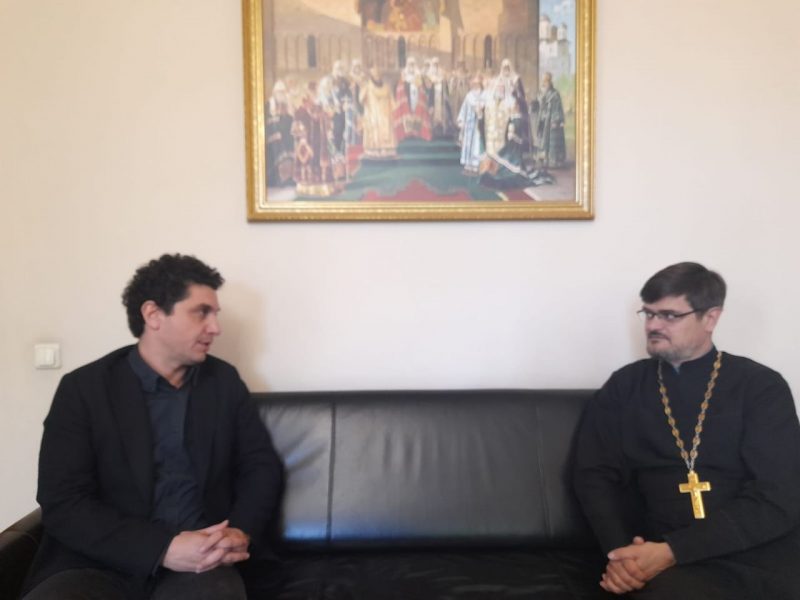
Multipolarity and globalization are concepts on the global agenda. How does the Church regard these concepts?
I would like to emphasize that the Church, first and foremost, emphasizes is an institution completely separate from politics. However, this doesn’t mean that we don’t follow the developments in the world.
Globalization is an undeniable reality. In ancient times, people needed quite a lot of time to access information or make decisions. Nowadays, everything has accelerated. However, this has also led to certain kind of corruptions.
On the other hand, globalization has gives us the chance to get to know different cultures. We can turn this into an opportunity.
Regarding multipolarity, I must emphasize that it is primarily a political concept that should be evaluated by experts.
Let me express some facts we have witnessed. After the Second World War the world settled into a bipolar balance. Even though the two powers clashed with each other, still there was a certain balance in place.
After the collapse of the Soviet Union, some experts claimed that the world had become unipolar. However, the experiences of the 1990s and the early 2000s showed us that such a system was not good. Systems that are not based on fundamental moral values are flawed. Today, perhaps having different powers with similar strengths will lead to a better balance in the world.
George Bush’s crusade “not a concept of Orthodoxy”
You talked about the late 1990s and early 2000s. The US president George Bush had used the concept “New Crusade” during the invasions of Afghanistan and Iraq. The US has imposed its hegemony through an almost religious doctrine. What are your thoughts on this subject?
The invasion of Iraq was a result of a unipolar world.
I should state that the concept of the Crusade is not a concept of Christianity, at least of the Orthodoxy. The Catholic Church, in fact, has made statements condemning and considering it a mistake.
Until the mid-20th century, the US had a predominantly Christian structure. Ronald Reagan often invoked Christian concepts in his stance against the Soviets and gained support from his own people. In contrast, nowadays they fight against many moral values by defending such concepts as the same-sex marriage. This undermines the institution of marriage.
We have severed ties with the churches in the US that support these kinds of decisions. Yet, I must point out that there are still American churches that oppose these decisions, although they may not have their voices heard.
Today, the administrations in the US and other Western countries no longer have any connection to Christianity. To my Muslim friends, I would like to say that the West no longer represents Christianity in any way. Their actions are merely provocations.
On the role of the Vatican
The Vatican is pursuing a neutral policy on the conflict in Ukraine. How do you assess that?
I can say that the Vatican tries to be very correct in many political problems. About the war Ukraine, the Vatican acted very cautious in order to not to provoke more blood and tension.
The Vatican is very active in world politics. It is the only entity in the world that is both church and state and has representatives in all countries.
The Vatican has a great historical experience, full of good and also bad cases. For bad ones, we can mention the Crusades. Now we see that they took the fruits of their experience. Even, sometimes the Vatican involves into peace initiatives.
What is the Church’s view of the ongoing conflict in Ukraine? Do you support the position of the Russian government?
Nobody understands what happens in Ukraine better than Russians and Ukrainians. To understand this you need to know our common background, history, spiritual history and all aspects of our life together for the centuries very well.
In these two countries, it is not really easy to find individuals who don’t have both Russian and Ukrainian relatives. It means we are very close and we are relatives. And we have a great common history.
All the terrible things that are happening now are linked to the political aims of forces from outside the region. Let me openly put that nobody wants peace more than Ukrainians and Russians.
From the very beginning of this conflict, our Patriarch has been calling for peace. Our Church is doing a lot to help people in need, especially refugees. Since 2014, hundreds of thousands of refugees came to Russia from eastern part of Ukraine. During all these years, our Church supports them.
I want to add that Ukrainians and Russian are Orthodox believers. We were born by one and the same Church. This is a very strong tie for us. Some powers try to break this spiritual tie.
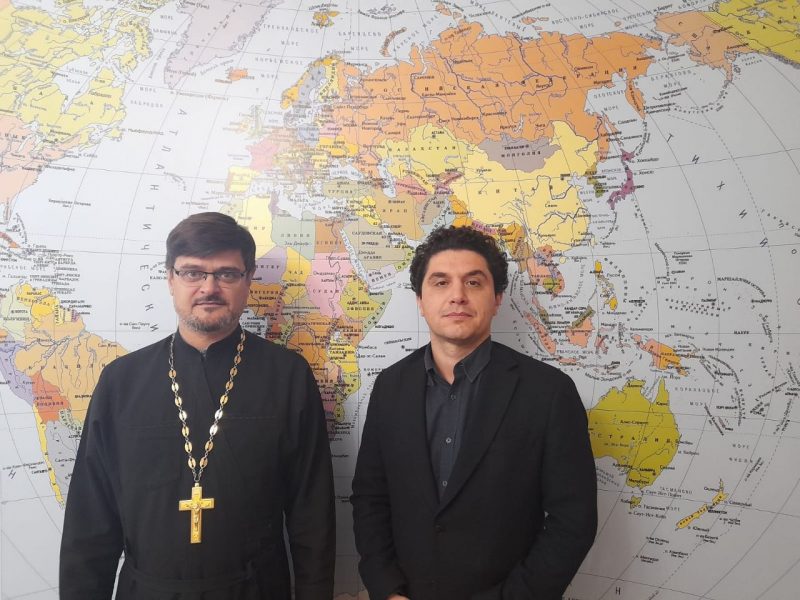
The Orthodox Church in Russia and Ukraine
Isn’t the Orthodox Church in Russia different from the church in Ukraine?
I need to clarify this. We have the Ukrainian Orthodox Church, which includes the majority of Christians in Ukraine.
The Ukrainian Orthodox Church is subjected to a huge pressure because of its spiritual relativeness with Russian Orthodox Church. Its very existence is under threat and its churches are now being usurped.
As I said before, some forces do not want the war in Ukraine to end. That is why they trying to use the religious factor for it. And these forces used for this the creation of the schismatic so-called Orthodox church of Ukraine. This entity was created in 2018 by the decision of the Patriarch of Constantinople (Fener Greek Patriarch), by Bartholomew I. This entity is completely uncanonical. The Ukrainian government previously established promo version of this structure as well.
Why did Bartholomew I take such a decision? What is the purpose?
You can directly ask this question to him. Our Patriarch Kirill met with him before he made this decision and told him that such a decision would increase tensions in Ukraine and cause tragedy. But Bartholomew did not embrace our views. And today we are witnessing the outcomes of that…
Why does the US support the Fener Greek Patriarch?
To not increase the tension and not politicize the issue, I can’t comment on this. Because it is not the Christian way to say that my brother is very bad.
But if you analyze the outcomes of his decision, you can recognize who is influent on this and what the objective is. All other things, which I say on this issue, will not be good and will just increase the tension.
Russian identity between Asia and Europe
You represent a long-established institution. There has been a centuries-long debate about Russian identity. Do you think Russia is European or Asian?
Uniqueness of Russia is to be situated in Europe and in Asia at the same time. So how we can ignore this? Or can we add the European part of Russia to Asian part? It is our mission; it is our challenge to be here and there.
But I have to say that in today’s world, the more the West loses its roots and its ties with traditional values, the closer I feel myself to the Eastern world. In Eastern societies traditions and faith are still precious and significant. They maintain the culture of coexistence. Türkiye and Russia are good examples in this regard.
I infer from what you have said that you are against the Eurocentric perspective.
Indeed. The Eurocentric doctrine is very wrong. We have different civilizations in the world and all of them are equal. How can we assert that one is more important than another?
Turkish – Russian relations
Regarding Turkish-Russian relations, what role do you play as clergy in the development of relations between the two countries?
Our countries are still very traditional and the religion is still very important for most of our people. That’s why religious leaders could do a lot for our relations and common understanding.
We already have a good model for doing this. We have a permanent working group for cooperation between the Russian Orthodox Church and Religious Affairs Administration of Türkiye.
We gathered several times and I hope we can continue on this work. During meetings we addressed both fundamental issues and the current agenda.
When it comes to cooperation between Türkiye and Russia, the doctrine of Eurasianism is often referred. What is your view on this doctrine?
The doctrine of Eurasianism has many meanings and sub-doctrines. I see that there is a great interest in this doctrine both in Russia and Türkiye. There are two different understandings of Eurasia in the two countries. We need to harmonize them. If we can do that, it will be a tremendous development not only for our countries but also for the world. If we can create a peaceful Eurasia, we can save the world. This is the task of Türkiye and Russia.
In addition, despite we have fought many times in history, we cannot talk about any hatred that exists between the two peoples. This is very very important. We have many common values and traditions. We can build a new Eurasia on them.
“Great respect” for Mustafa Kemal Atatürk – Russia faces today similar challenges
There was a similar cooperation between Mustafa Kemal Atatürk and Vladimir Lenin.
We know Mustafa Kemal Atatürk very well and we have great respect for him. Actually today we face some similar challenges. In recent years there have been many provocations to spoil relations between the two countries, but we had the strength to overcome them. And I believe in good future for our relations based on big sympathy to each other, on love between our nations and on our obvious responsibility for the future of all Eurasian civilization.


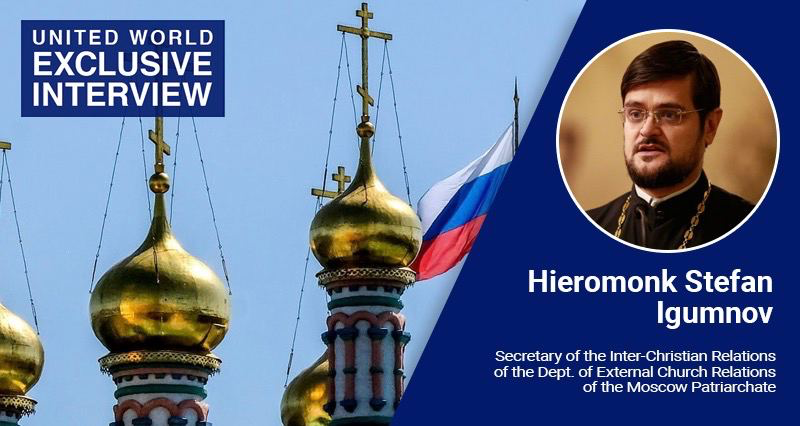

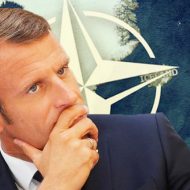
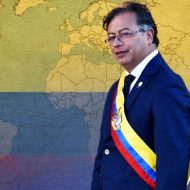
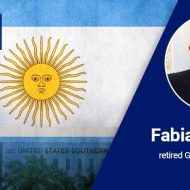
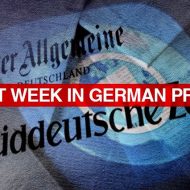
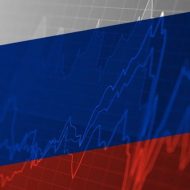
Leave a Reply